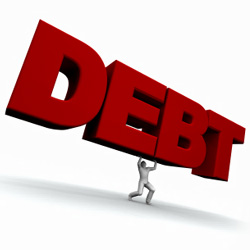(VEN) ? Many countries do not apply any particular taxes to restrict real estate speculation. They usually prevent real estate speculation through a variety of taxes. In the event that real estate-related taxes are sound, they will create a major source of national and local budgets, while contributing to restricting real estate speculation.
A study from the International Monetary Fund (IMF) shows that high taxes on housing and land help control real estate bubbles and a rapid increase in the price of real estate. Most countries impose property taxes on housing to create a major source of local budget and to contribute to pegging real estate speculation. However, taxes on housing vary in these countries. Russia, China and the Republic of Korea levy housing taxes on the owner. However, in the event that the house owner is unidentified, the house user must pay the tax. France applies housing taxes on people who live in the house; no matter whether they are the owner or the tenant.
Tax rates also vary following the value of the house or the lease price. For example, China imposes a 1.2 percent tax based on the value of the house, and a 12 percent tax based on the price of the lease to domestic individuals or an 18 percent tax for enterprises and foreign individuals.
Vietnam?s Non-farming Land Use Tax Law fixes residential land taxes of 0.03 percent, 0.07 percent and 0.15 percent based on the land area; non-farming production and commercial land 0.03 percent; improperly-used land 0.15 percent; and encroached land 0.2 percent. Experts said that the Vietnamese existing non-farming land tax rates were low when compared with foreign countries causing small budget revenues and not helping restrict real estate speculation. The Republic of Korea applies residential land taxes of 0.2-0.5 percent of the value of land following land use purposes. Chinese Taipei applies land taxes of up to 5.5 percent to the excessive value of land. Several countries such as France have specified taxable land by applying high taxes to unused or barren land in order to encourage the effective use of land.
There is a small gap between taxes on incomes from real estate sales in Vietnam and foreign countries. Vietnam applies taxes on personal income from real estate sales including 25 percent of the gap between the buying and selling prices after deducting related expenditures, and 2 percent of the sales, while most foreign countries apply progressive tax rates to incomes from real estate sales.
Vietnamese tax policies do not clarify real estate ownership periods, while several foreign countries impose taxes on profits from real estate sales following sales frequency in order to prevent real estate speculation and bubbles. For example, Singapore taxes 100 percent of the gap between the buying and selling value in the first year of transaction; 50 percent in the second year and 25 percent in the third year. The Republic of Korea also applies similar tax rates including 50 percent of profits from real estate sales within the first year and 40 percent after the first year to the second year (for registered real estate) or 70 percent (for non-registered real estate). Since 2007 to prevent speculation and bubbles, the Republic of Korea has imposed a tax rate of 50 percent on profits from real estate sales for individuals who have two homes and 60 percent for individuals who own three or more houses or apartments.
Chinese Taipei adopted an excise tax law in April 2011, fixing a 15 percent tax on real estate sales within one year after purchase and 10 percent within two years after purchase in order to prevent speculation and cool down the real estate market. Vietnam should learn from these countries.
However, Vietnam does not have a national housing and land management database system, causing difficulties in state management of housing, land, the real estate market and taxes on real estate trading. For this reason, the Government should ask related agencies to quickly set up a housing and land management database system, while applying information technology to ensure effective enforcement of tax law and to strengthen state management of housing, land and the real estate market.
In addition, tax tools including increasing taxes on house and land ownership and applying progressive taxes on income from real estate sales are needed to prevent unused housing and land. Tax tools will only bring about benefits once authorities can control the amount of real estate and the number of real estate transactions. It is also needed to adjust current price bases for calculating real estate taxes and registration charges, which are fixed annually by provincial and municipal people?s committees and are usually 30 percent lower than the market price./.
Minh Duc
Source: http://talkvietnam.com/2013/03/tax-tools-restrict-real-estate-speculation/
hornets prince johan friso windows 8 logo anguilla gone with the wind checkers imbibe






কোন মন্তব্য নেই:
একটি মন্তব্য পোস্ট করুন